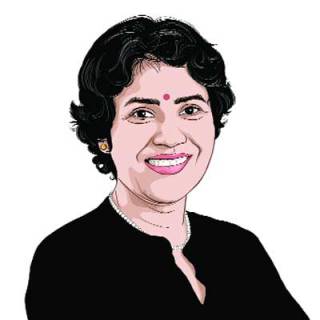Hindu, not Hindutva
Rahul Gandhi’s temple visits do not add up to soft Hindutva. Important distinctions need to be made

On January 30, 2019, it will be exactly 71 years since Mahatma Gandhi was assassinated. Much is made of that moment. But consider this: The image of Gandhi, a man of God, at his daily prayer meeting in Birla House, being shot dead by a follower of an atheist, one who stood for a Hindu Rashtra. Succumbing after crying out “Hey Ram”, Gandhi died so the thirst of an anxious section — which believed he represented a despicable softening of the Hindu soul, unacceptable to independent India — could be satiated.
But the point here is that one can be personally religious and simultaneously accept the rights of others to be the same. There has been much debate about Rahul Gandhi, in recent months, of being engaged in several temple visits. His visit to temples — even his visits to holy places of other religions are ignored — have been labelled insincere by the BJP. Most recently, on November 15, a BJP spokesman said: “Temple hopping of Rahul Gandhi, the temporary janeu he adorns, the fancy dress Hindutva that he has taken to, are nothing but eyewash”. Ten temple visits in 68 constituencies have been noted and data assembled about them. The BJP going after Rahul for demonstrating his “Hinduness” is completely understandable. But what is puzzling is those critical of the BJP saying that Rahul is pursuing “soft-Hindutva”. It suggests a fundamentally flawed understanding of the sense of secularism that India promises and some serious political dark-spots too.
In principle, secularism in India (which predates the formal insertion of the word “secular” in the preamble), is about matters of the state or public affairs being indifferent to the faith of the Indian citizen. Who or what you worship, if you worship at all, is not of any consequence to the Indian state. Even before the word was inserted in the 42nd amendment to the Constitution in 1976, Article 14 which clearly enunciated equality of all citizens, Article 25, which holds the promise of the right to practice, profess and propagate any faith, and, Articles 29 and 30, for holding your right to preserve distinctive cultural, linguistic and religious characteristics, could not have been more unequivocal.
The French Laïcité, making it essential to hide overt symbols of religiosity (more controversially the turban or the burqa) is something the Indian state stayed away from. It stuck to the classic separation of the Church and State, where religious affairs remained in the private domains of citizens and representatives.







































No hay comentarios:
Publicar un comentario